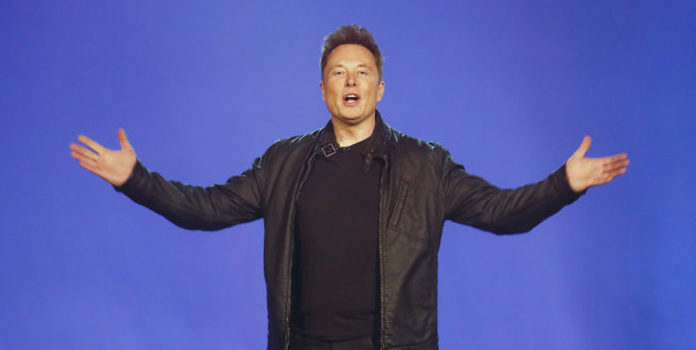(Ezekiel Loseke, Headline USA) Elon Musk banned several mainstream media journalist’s Twitter accounts for doxxing his exact location after his son’s car was attacked by a stalker who thought Elon (and not his son) was in the car.
Elon’s son, who he named X Æ A-12, but refers to as “Lil X,” was followed in LA by a person he described as “a crazy stalker,” according to HITC. Musk explained that the person stopped the “car from moving and climbed onto the hood.” Musk said he believed that the stalker thought Musk, not “Lil x,” was in the car.
When Musk was asked why he suspended the accounts, he replied, “Same doxxing rules apply to ‘journalists’ as to everyone else,” according to the Post Millennial.
“They posted my exact real-time location, basically assassination coordinates, in (obvious) direct violation of Twitter terms of service,” he tweeted. “Posting locations someone traveled to on a slightly delayed basis isn’t a safety problem, so is ok,” Musk clarified.
The suspended journalists included:
- Keith Olbermann
- Ryan Mac of The New York Times
- Donie O’Sullivan of CNN
- Drew Harwell of The Washington Post
- Matt Binder of Mashable
- Micah Lee of The Intercept
- Steve Herman of Voice of America
- Aaron Rupar, an independent journalist
- and Tony Webster, another independent journalist
as reported by Slay.
The mainstream media, apparently unaccustomed to being held to the same rules as everyone else, was indignant about the suspensions.
Taylor Lorenz, a former reporter at NYT and current Washington Post reporter, tweeted out that she was afraid of being banned for criticizing Musk, according to the Post Millennial. However, Musk clarified via tweet that “Criticizing me all day long is totally fine, but doxxing my real-time location and endangering my family is not.”
CNN and The New York Times both released statements condemning Musk’s suspension, according to Breitbart News.
“Tonight’s suspension of the Twitter accounts of a number of prominent journalists, including The New York Times’s Ryan Mac, is questionable and unfortunate,” said Charles Stadtlander, a spokesman for The New York Times.
“Neither The Times nor Ryan have received any explanation about why this occurred,” he continued. “We hope that all of the journalists’ accounts are reinstated and that Twitter provides a satisfying explanation for this action.”
CNN was equally indignant.
“The impulsive and unjustified suspension of a number of reporters, including CNN’s Donie O’Sullivan, is concerning but not surprising,” CNN Communications accounted tweeted.
“Twitter’s increasing instability and volatility should be of incredible concern for everyone who uses the platform,” the tweeted photograph said. “We have asked Twitter for an explanation, and we will reevaluate our relationship based on that response.”
The actions taken by Musk do represent a contradiction with his previously established standards regarding a particular Twitter account named @Elonjet, according to CNBC.
Elonjet was a Twitter bot that used publicly available flight information to tweet out Elon’s movements via his private jet.
Previously, Elon had tweeted, “My commitment to free speech extends even to not banning the account following my plane, even though that is a direct personal safety risk.”
However, on Thursday, he suspended the account and some other accounts retweeting its posts.

